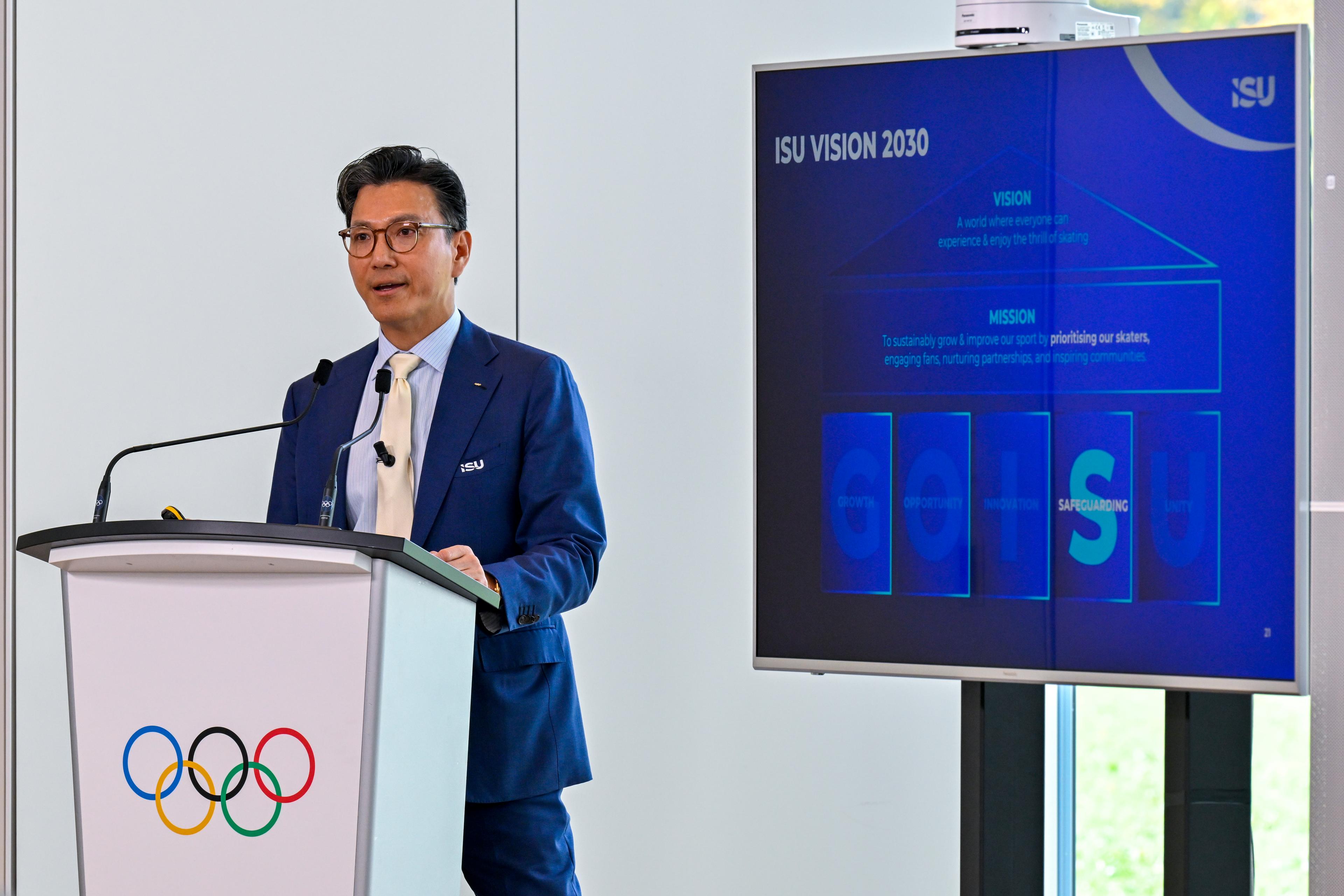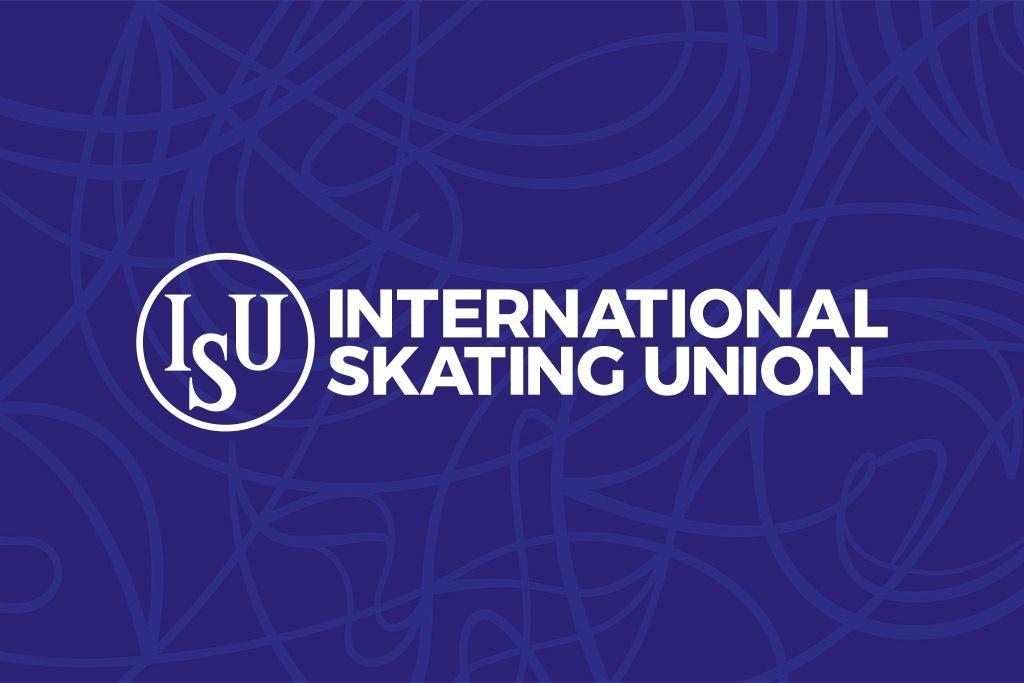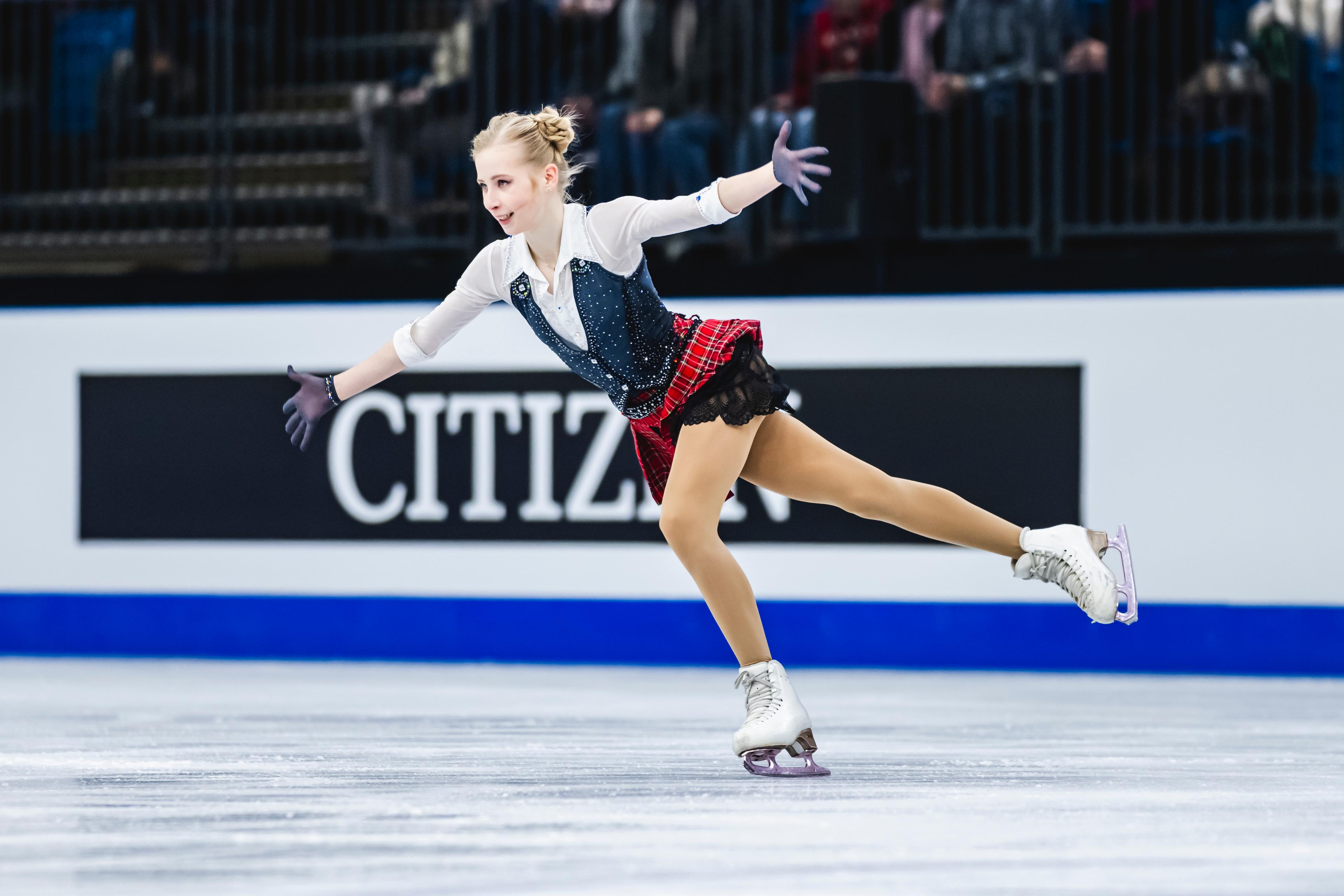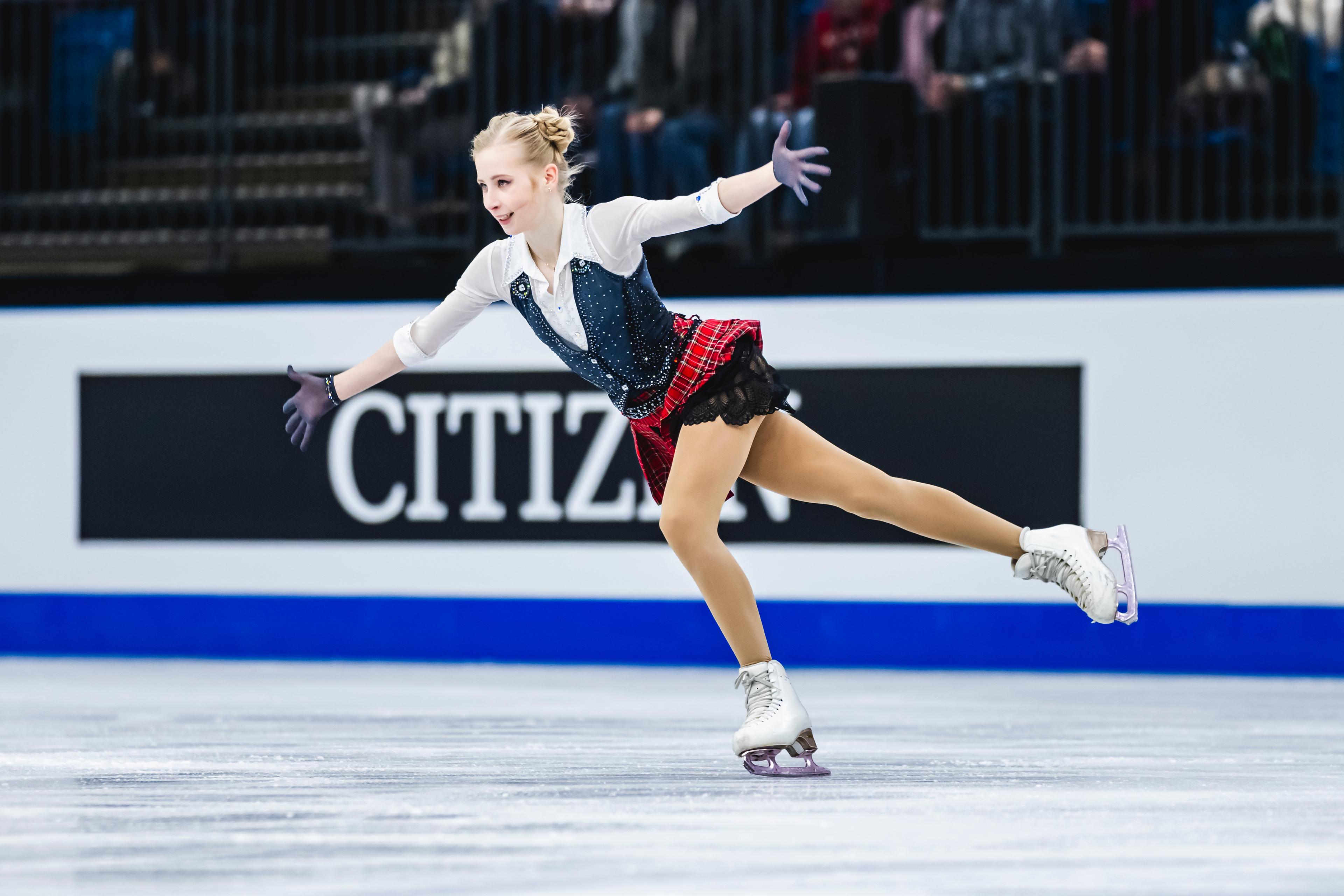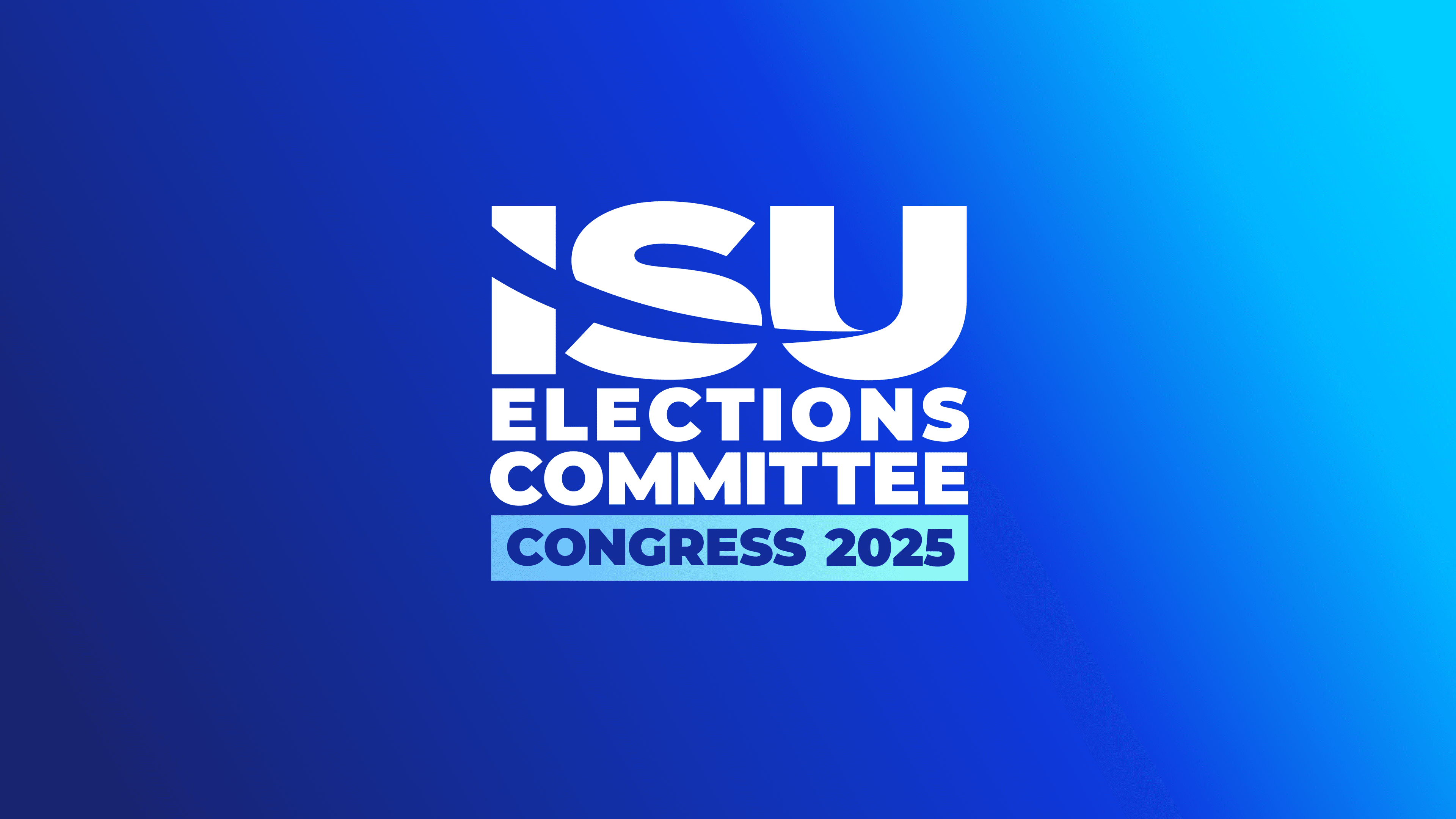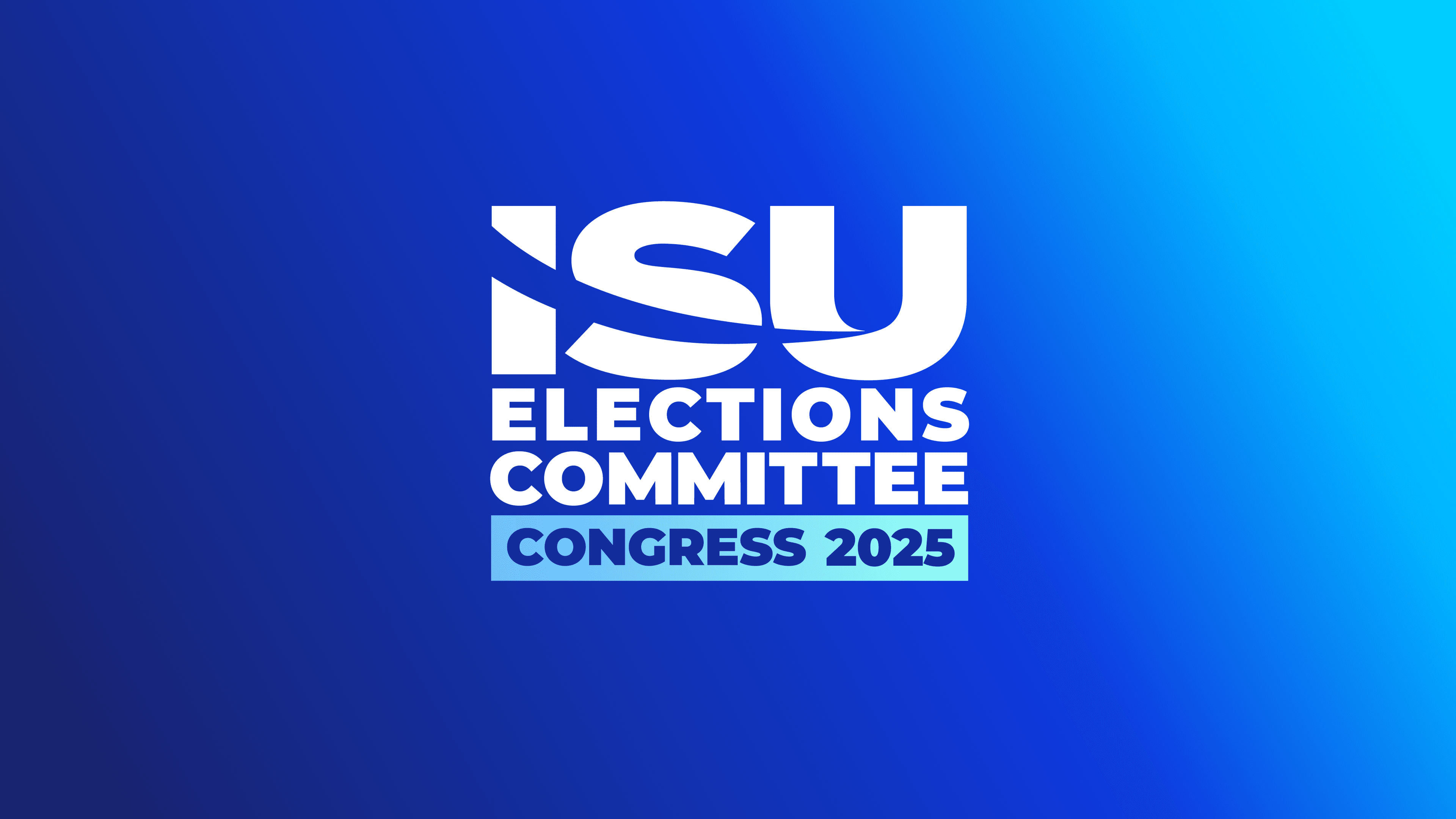Safeguarding
ISU Management takes the stage at IOC International Forum for Sports Integrity
27 Oct 2025
The International Skating Union (ISU) reaffirmed its strong commitment to integrity and athlete safeguarding on a global scale, as ISU President Jae Youl Kim and Director General Colin Smith took the stage at the 5th International Forum for Sports Integrity (IFSI) in Lausanne, convened by the International Olympic Committee (IOC). Joining leaders from across the international sports community, the ISU Management highlighted how athlete-focused initiatives and innovative, technology-driven solutions are shaping a safer and fairer sporting environment for all.
Convinced that dialogue, collaboration, and the exchange of best practices are essential to driving progress, ISU President and IOC Member Jae Youl Kim as well as Director General Colin Smith were honoured to contribute to this year’s Forum, which explored the emerging challenges and new opportunities in the ever-evolving field of sports integrity.
ISU President Jae Youl Kim: Safeguarding Approaches in Sport
President Kim took part in a high-level panel titled “Safeguarding in Sport – Specificities, intersections, and contextualised approaches for integrity”. In his address to the Forum, he underlined the ISU’s multi-layered approach to athlete well-being and safeguarding, constituting one of the five pillars of ISU Vision 2030, the organization’s strategic roadmap for modernization. Since his election in 2022, the ISU has advanced safeguarding through a range of initiatives grounded in clear, measurable actions.
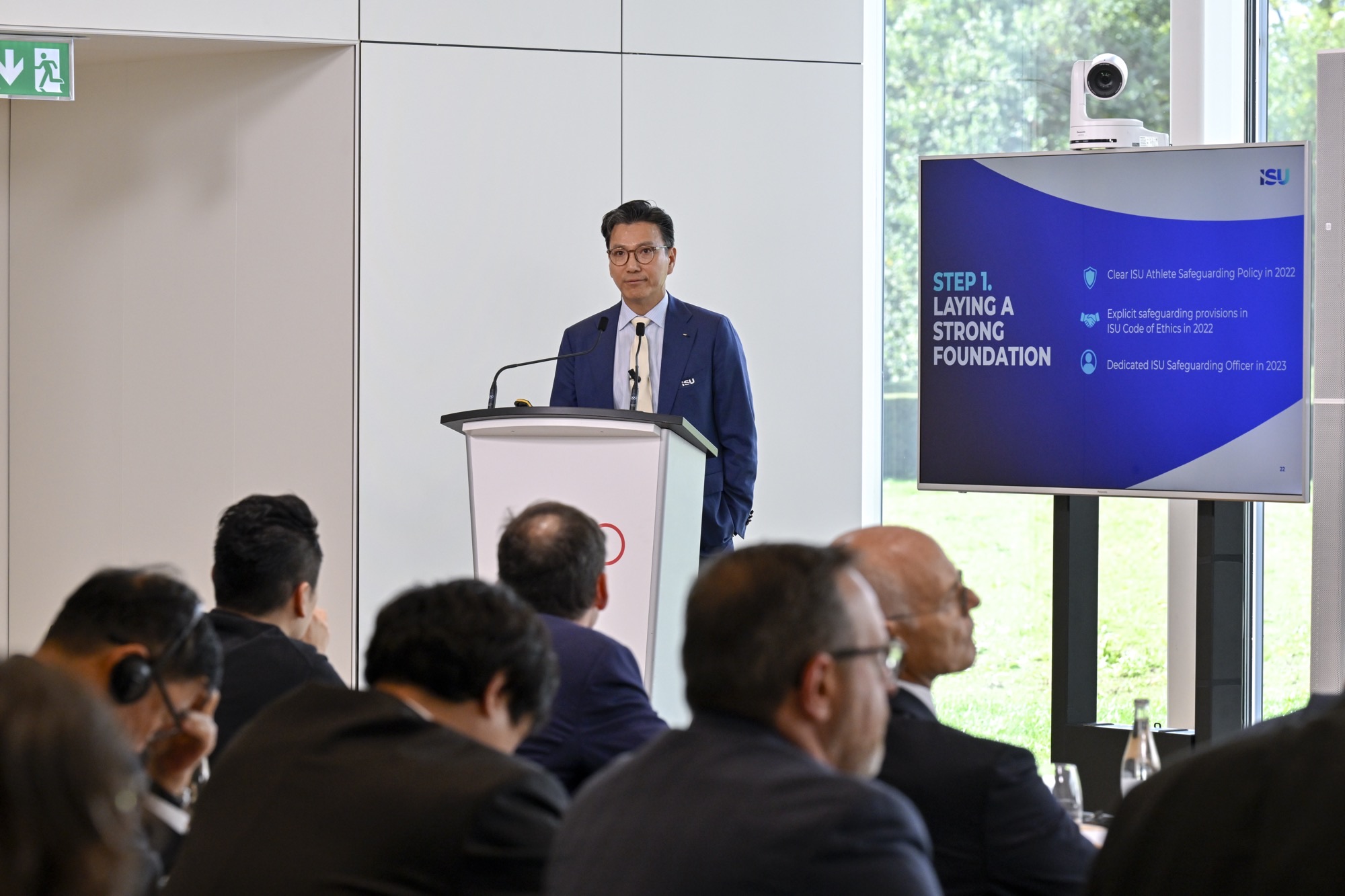
ISU President, Jae Youl Kim, taking part to the 5th International Forum for Sports Integrity in Lausanne, Switzerland, 2025. © IOC/Christophe Moratal
“Safeguarding is not a one-time measure - it’s a culture we build together,” said President Kim. “At the ISU, we take safeguarding seriously. Through our strategic Vision 2030, we are committed to keeping our sports clean from doping, fair in competition, and safe for our athletes. We have been taking concrete steps to protect both the physical and mental well-being of our skaters. Earning their trust requires more than policies - it requires real actions and genuine care that demonstrate our commitment every day.”
Step 1: Laying a strong foundation
These efforts began with the introduction in 2022 of the ISU Athlete Safeguarding Policy and the update of the ISU Code of Ethics to include explicit safeguarding provisions, followed by the appointment of a full-time ISU Safeguarding Officer in 2023 to foster education, Member support and cases follow-up.
Step 2: Raising Awareness
Awareness and education are central to preventing harassment and abuse, while promoting athlete welfare in a holistic way. At the ISU Congress 2024, Kirsty Burrows, Head of the IOC Safe Sport Unit, and Gracie Gold, two-time U.S. Champion and Olympic medalist in Figure Skating, shared their perspectives as leading voices in the field by engaging openly on the topics of safeguarding and mental health struggles (read here).
Step 3: Encouraging Members to act
To support Members in taking concrete action, the ISU decided during the 2024 Congress to increase annual funding by 20% for the implementation of safeguarding policies and procedures (read here). This decision has already led to significant progress, with more than a third of Members establishing safeguarding frameworks in the first year, alongside a similarly encouraging trend in the designation and training of Safeguarding Leads.
Step 4: Cross-sector Cooperation
Recognizing that safeguarding is a complex and worldwide issue, the ISU firmly believes that collaboration with leading international organizations is essential to driving meaningful change. For this reason, the ISU has established partnerships with United Against Online Abuse, Athlete365, UNICEF, and the SAYES Project, among others - strengthening its cross-sector approach to safeguarding and athlete well-being.
Step 5: Monitoring and moderating online abuse
Given the scale and severity of online abuse, the ISU has taken proactive steps to test and implement this 2025/26 season an AI-driven program designed to monitor and moderate abusive content across social media platforms (read Decisions of the ISU Council here). Based on a detailed risk assessment, 30 to 40 athletes will benefit from real-time comment moderation, ensuring the immediate removal of harmful content, while up to 80 athletes and accounts will be included in twice-daily monitoring.
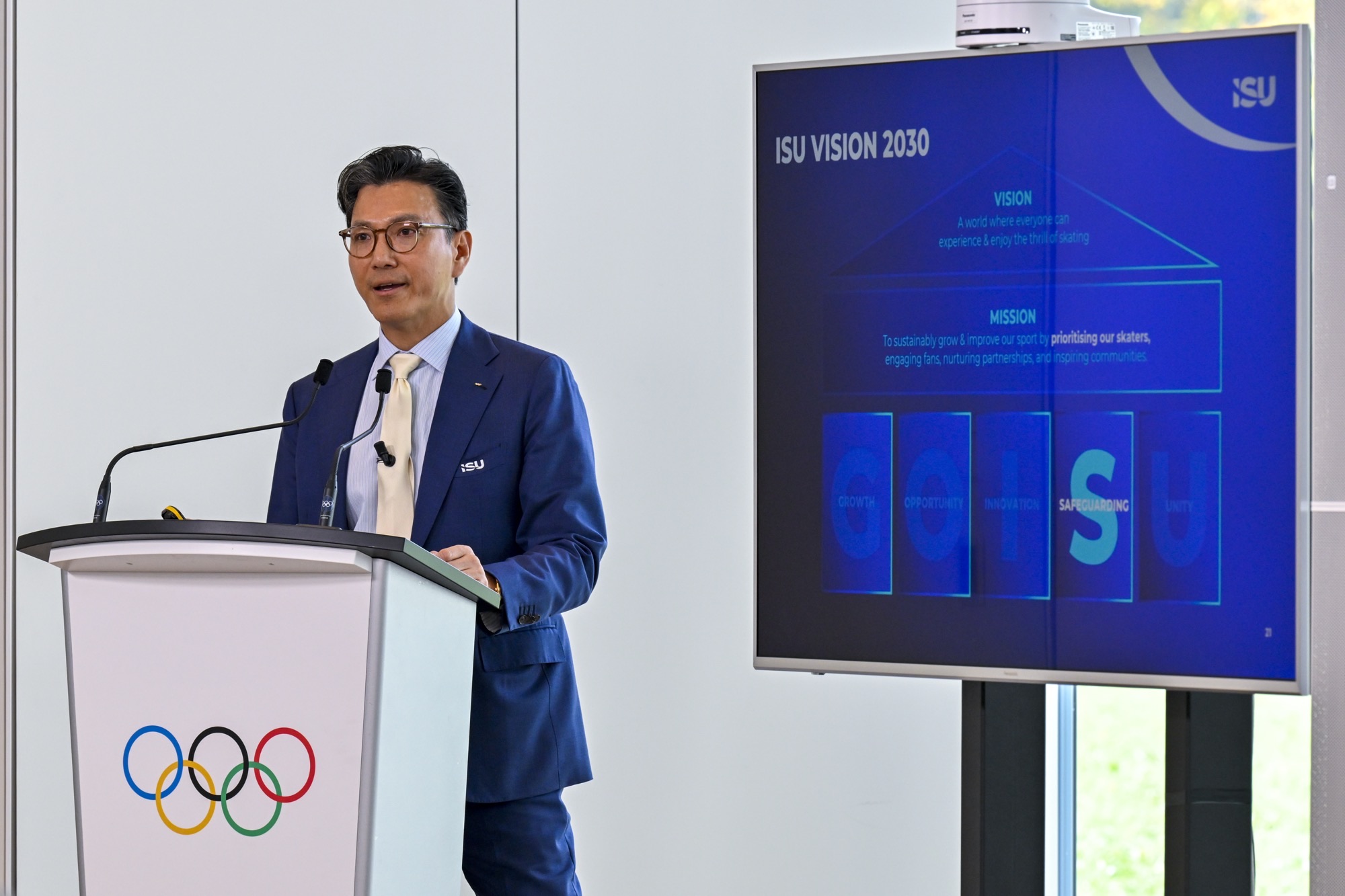
ISU President, Jae Youl Kim, taking part to the 5th International Forum for Sports Integrity in Lausanne, Switzerland, 2025. © IOC/Christophe Moratal
Step 6: Looking Forward
Looking ahead, as Vision 2030 continues to take shape through concrete steps, President Kim concluded by outlining a new phase of initiatives aimed at fostering a safe, inclusive, and forward-looking sporting culture. These include:
- Creation of aSkating Integrity Unit (IU): An independent body, elected by ISU Members, whose mission is to uphold the integrity of ice-skating sports across all areas of governance and competition. Its scope will include investigations and prosecutions related to Anti-Doping, competition manipulation, corruption, safeguarding and violations of the ISU Codes of Ethics more broadly (read here). As a pioneering initiative, the ISU is proud to be the second Winter Olympic Federation, after Biathlon, to introduce such a structure.
- Expansion of ISU Calm Zones: Strongly supported during the latest ISU Council meeting (read here), the ISU Calm Zone initiative will continue its rollout this season at ISU Olympic Qualifying events, following successful implementation on major ISU competitions in Boston, Beijing and Montreal. As a key component of the ISU’s mental health and wellbeing strategy, Calm Zones provide athletes with safe, restorative spaces during intense competition time, featuring mindfulness tools, creative activities, and the support of trained mental health professionals, and where possible the presence of therapy dogs (read here).
- Ongoing education for the skating community and entourage: The ISU will further strengthen its educational resources to increase awareness of safeguarding principles, not only among skaters but also within their wider support networks.
- Building a “speak-up” culture of openness and trust: There has been a steady increase in safeguarding issues reported to the ISU over the past three years, reflecting a growing willingness among skaters to come forward. Alongside its established reporting mechanisms (read here), the ISU aims at diversifying touchpoints available to skaters, by leveraging for example social media to share stories on athlete well-being, normalize conversations on mental health, and encourage open dialogue in safe and supportive way.
ISU Director General Colin Smith: Role of Artificial Intelligence (AI) in Technical Officials’ integrity
ISU Director General Smith contributed to the “The Role of Artificial Intelligence in Technical Officials’ Integrity” panel, highlighting how of AI can be used in a responsible and effective way to strengthen accuracy, fairness, and transparency in officiating.

ISU Director General, Colin Smith, taking part to the 5th International Forum for Sports Integrity in Lausanne, Switzerland, 2025. © IOC/Christophe Moratal
Computer Vision tools to support Judging and Storytelling
In recent years, the ISU has made significant progress in enhancing integrity in officiating, introducing new technologies that bring greater objectivity and transparency to technical analysis and scoring. These tools not only improve judging accuracy and accountability but also enrich the broadcast and viewing experience.
When applied to its four ice-skating disciplines, the ISU tailors integrity and judging mechanisms to the unique specificities of each sport. In Speed Skating, precision is ensured through time-based results. In Short Track, that involves close-contact racing, technologies like the Video Assistant Referee (VAR) system currently support officials in reviewing critical moments such as interferences or false starts. In Figure Skating, the challenge lies in balancing technical precision with artistic performance. As Colin Smith explained, “We are introducing high-resolution cameras and adding layers of accountability through the Technical Panel and specialists. This will allow Judges to focus more on grading execution and artistic performance, while the technical components are assessed by the Panel Team.”
Looking ahead, the ISU is exploring the integration of AI and Computer Vision technologies to make judging even fairer, more accurate, and consistent. Over the past two years, the ISU has partnered with external partners to test advanced Computer Vision systems at several events, using high-tech cameras around the rink to capture and “learn” skaters’ movements from every angle in real time. These tools could soon provide precise performance data to support the Technical Panel and enhance TV broadcasts with dynamic graphics and analytics, while the artistic dimension would continue to rely on the human expertise and interpretation of the Judges.
“The data we get from this tool is not just for technical analysis, it helps us bring the sport to life – gamification of graphics, speeds of spins, heights of jumps, distances travelled, and so on”, emphasized Colin Smith, highlighting how these technologies can elevate storytelling to an entirely new level. These pieces of information help us tell the story to fans at home in a more dynamic and accessible way.”
For now, the project remains in its testing phase, developed in close coordination with the ISU Technical Committee, Vice President, Council Members, and Technical Specialists.
Levelling up quality and consistency in Judging Practices
Alongside the computer-based tools designed to foster fairness on the ice, Colin Smith highlighted the ISU’s efforts to enhance the quality and consistency of judging practices off the ice. The ISU has recently introduced a comprehensive, data-driven evaluation system to assess Judges’ performances across a range of criteria. Drawing on the analysis of more than 600,000 element marks from 62 events and 460 judges, this monitoring process enables the ISU to objectively grade and rank officials worldwide, identifying variations in accuracy and consistency. This approach will allow providing guidance to ISU Members in the appointment process of Judges, ensuring informed and evidence-based decisions.
Colin Smith stated: “Just as it takes talent to perform on the ice, judging is also an art and a skill. With this new evaluation system, our goal is to identify the most competent officials and support them at the elite level, while providing others with the training and coaching needed to raise judging practices across all levels. By doing so, we are strengthening the overall quality of officiating across our sport and ensuring that every skater is evaluated with the highest standards of expertise, credibility and integrity.”
The complete IFSI panel discussions are available for replay here.
